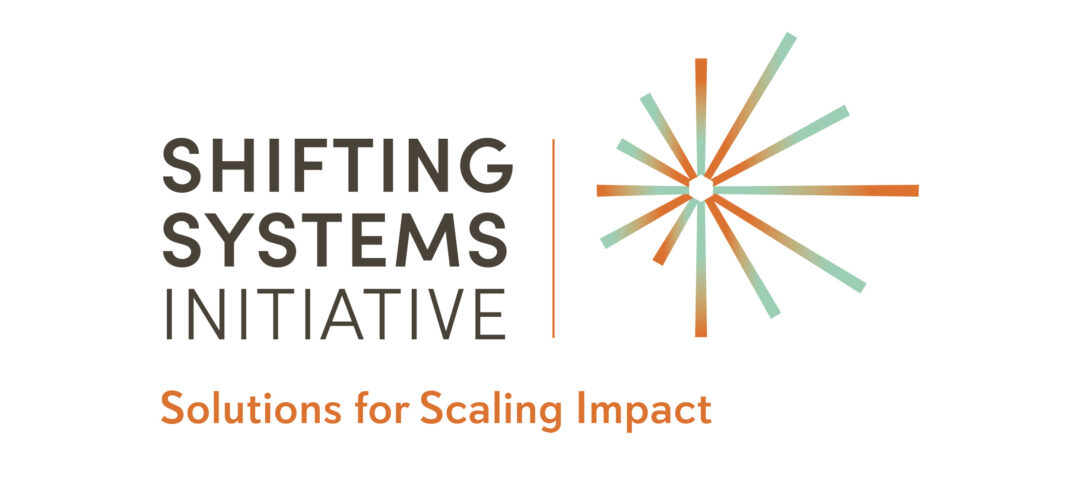Philanthropy Needs More Walk, Less Talk to Create Systems Change
April 05, 2024
If we think of the philanthropic sector as a world-class kitchen striving to create the perfect meal, we have many talented chefs with valuable expertise opining on how to best prepare the recipe, but not many chefs are picking up the right ingredients and utensils to actually do the hard work of cooking the meal.
This analogy aptly captures a key finding of a six-month in-depth evaluation of the Rockefeller Philanthropy Advisors’ Shifting Systems Initiative’s progress since its 2016 launch. The main insights and recommendations from this assessment are distilled in the Evaluation of the Shifting Systems Initiative report, published in 2023.
This specific insight calls out the disconnect between the volume of funder conversations around systems change and the actual implementation of transformative systems change work, which crucially includes transforming internal practices, processes and disrupting the existing power inequities. In other words, what the evaluation team found is that, as funders, we know what must change. The sector struggles with how to change. We’re talking the talk but not walking the walk.
Unpacking this finding is essential to honing our understanding of how to move forward with our work in enabling and creating meaningful systems change globally. The recommendations below discuss how to move from the “talking” stage to the “walking” stage in creating long-lasting systems change and the implications of those transformations for philanthropy:
We create change by working together. Within the field of philanthropy, there’s more collaboration and discussion among organizations than ever before. This has been effective in “de-risking” the conversation of systems change. Additionally, there are a growing number of conferences, collaborations and communication tools for organizations to use in working together. This is a positive step, but it must continue to flourish and produce actionable outcomes to create effective systems change.
We change systems by seeing the system and understanding systems thinking better. If philanthropy is to work together to create lasting change, we must all speak the same “language” of systems change. We must include and, indeed, empower the work of indigenous communities and those in the Global Majority – many of whom are already doing the hard work but describe it differently. What does it mean to actually create systems change? There’s perceived risk in some foundations adopting systems change terminology, and we must work to assuage this fear. If we’re merely obscuring practices with the new, shiny language of systems change, are we actually creating real systems change?
We change systems through scaling. Who is already doing the work of systems change rather than merely talking about it? We must increase efforts to scale up and scale out that work and support their expansion. By collaborating with these players rather than going it alone, we can have greater influence and a more profound effect. We must continue to view philanthropy as a web of interdependent players, praising and working with those who are successful in their work. In 2020, Rockefeller Philanthropy Advisors published the relevant guide Seeing, Facilitating, And Assessing Systems Change. Since its publication, it has served as a vital source of information on designing and measuring for effecting deep systems change.
We change systems by focusing on power structures, shifting power dynamics and ensuring that affected communities and those closest to the work gain more power in a new and different system. It’s no secret we live in a world historically dominated by the rulemaking of often socially-privileged white men. As one interviewee noted, “…some funders have rigid and heavily top-down structures while simultaneously holding a disproportionately significant amount of money and power. Individuals in these spaces often make sole decisions on the allocation of immense funds with little understanding of or connection to grassroots movements, indigenous communities or other local communities that have the most innovative and essential solutions to our global crises. These top-down actions then perpetuate systems of oppression rather than address the root causes of injustice.”
In essence, philanthropy, as a sector, must acknowledge the historical (and often problematic) sources of its wealth and the inequities that continue to flow from that genesis. To create effective system change, then, it should come as no surprise we must deconstruct that power structure and create new power hierarchies around wealth, race, gender and other categories that can divide us as humans. This idea aligns with a shift to participatory grantmaking where members of a vulnerable or affected community are directly involved in making decisions that affect them. Instead of talking about a solution, we must involve these communities at the table for action.
We change systems by changing ourselves and our relationships. Introspection is just as important in creating system change as is the need to look outside our organizations. If we ourselves have not changed our power structures and our hierarchies, how do we expect the larger system to transform? If we abide by policies in our own organizations that even subtly discriminate against the less powerful, how will we create meaningful change in the work of others? We must bring anti-racist models of power and decision-making to the forefront of not only other organizations but, more importantly, our own. To learn more about how philanthropic leaders can advance systems change, please view our resource Facilitating Equitable Systems Change: A Guide to Help Foundation Board Members and Executive Leadership Lead the Way
In reviewing these recommendations, one thing becomes clear: We have the “recipe” to create systems change. We have the talented “chefs” required to execute it. It’s time we galvanize the courage to pick up our heavy utensils and get to work.
Back to News